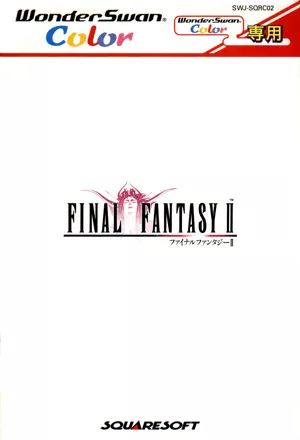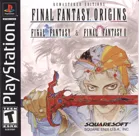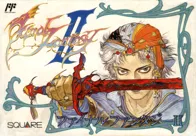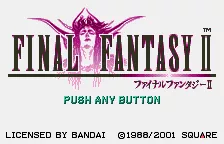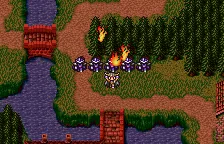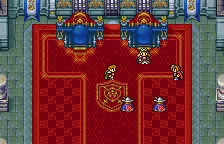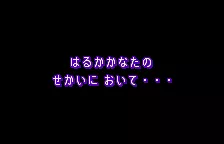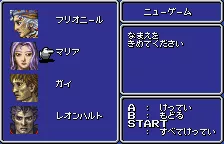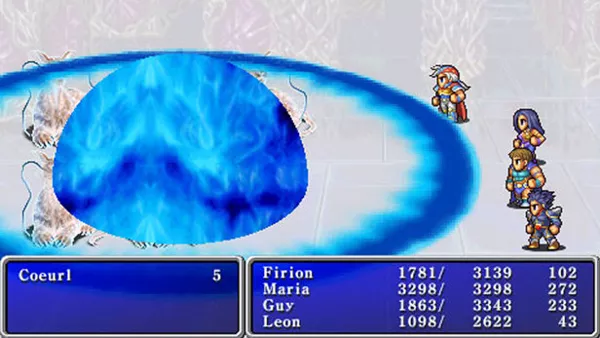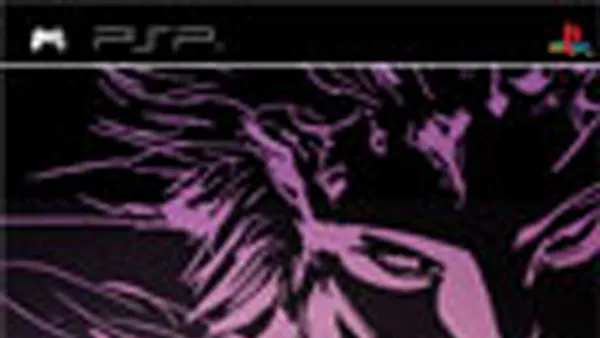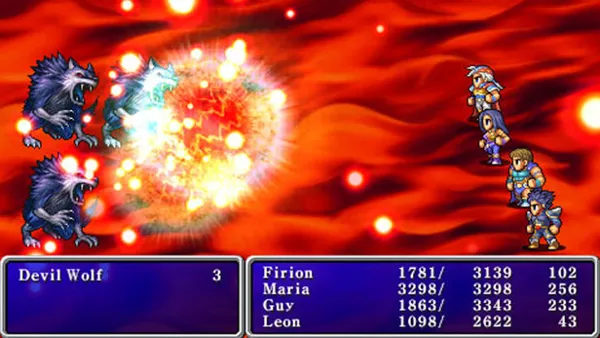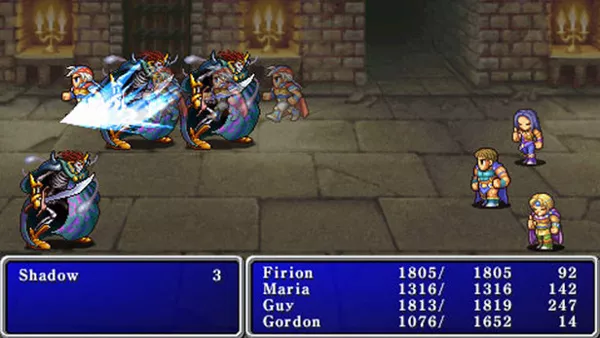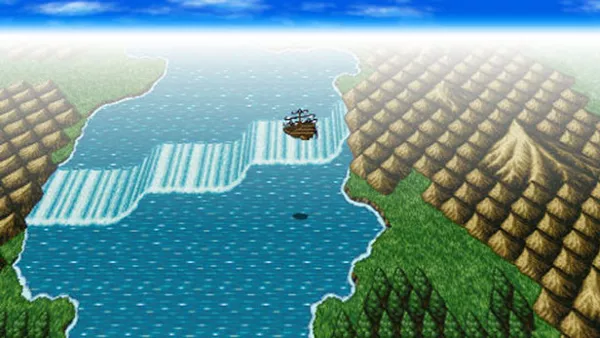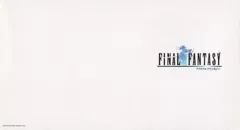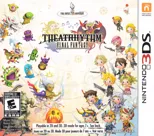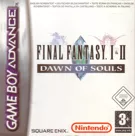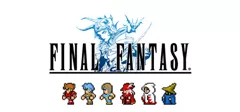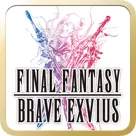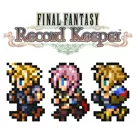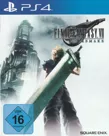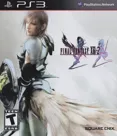Final Fantasy II
Description official description
Final Fantasy II is a remake of the Famicom (NES) game of the same name. This version's changes and enhancements are identical to those featured in the Final Fantasy remake and include:
- Updated graphics and soundtrack to resemble technically those of the 16-bit installments of the series
- An additional Easy difficulty level
- In addition to saving the game in towns, the player can also create a memo file at any time, which acts as a saved game file until the player quits the game
- Characters automatically target and attack a new enemy in case the originally targeted enemy has been defeated by another character during the course of the round
- The protagonist can run at any time if the player presses a correspondent button during movement
- A few minor changes have been made to character abilities
- A CG introduction movie has been added to the Playstation version
Spellings
- ファイナルファンタジーII - Japanese spelling
Groups +
Screenshots
Promos
Credits (WonderSwan Color version)
55 People (52 developers, 3 thanks) · View all
| Executive Producer | |
| Director | |
| Program | |
| Scenario | |
| Character Design | |
| Game Design | |
| Graphics | |
| Music Compose | |
| Sound Design | |
| Producer | |
| Director | |
| Planner | |
| Effect Programmer | |
| Effect Designer | |
| Character Designer | |
| [ full credits ] | |
Reviews
Critics
Average score: 75% (based on 4 ratings)
Players
Average score: 2.3 out of 5 (based on 20 ratings with 1 reviews)
Masochism can't be the only way to save the world
The Good
First of all: I haven't played the original version (well, not for more than one hour or so). This here is a remake, identical to the one included in Final Fantasy Origins. Since a lot of people seem to hate the original release with passion, I'll be careful and say that whatever I write here refers to the remake only, and withdraw my opinion about the NES version.
I dare say, however, that the remake is certainly less frustrating than the original: the addition of an extra Easy difficulty level says it all. Furthermore, they removed the annoying "air-hitting" feature from early Final Fantasies, added a quick save feature, and balanced some magic issues. So in any case this remake is surely more forgiving gameplay-wise.
The remake opens with a beautiful FMV. Also, graphics are much more detailed and charming than in the NES version, and the music sounds a hundred times better. What I'm trying to say is: if ever you become interested in this game, safely ignore the original version and try the remake right away.
The gameplay immediately draws attention to itself. It is unusual and original compared not only to other Japanese RPGs of the time, but to most other RPGs in general. Quest for Glory and most Elder Scrolls games have a similar character-building system: the more you do something, the better you become at that something.
Final Fantasy II goes in-depth with this system, adding to it weapon proficiencies and magic levels. Basically, if you keep using the same type of weapon , you'll inflict more damage with it. So if a character is, say, an axe specialist, he will hit enemies harder with a moderately powerful axe than with a brand new super-mega-sword. Also, by casting magic repeatedly a character gradually increases his or her intelligence, magic points, and the power of said magic.
This type of gameplay was certainly revolutionary for its time, and not just for Japanese RPGs. Remember that the original game was released in 1988, before the first Quest for Glory. My memory may be murky, but I don't recall another RPG that did anything like that before Final Fantasy II. For that this game should be commemorated.
You can easily see the advantages of this system over the plain leveling most Japanese RPGs have been using before or after. One of the cardinal concepts of role-playing games is player-dictated character growth. The key here are the words player-dictated: most control over character development in a RPG occurs when the player can decide at any time what to increase and how to decrease it. Well, as everyone know, most RPGs (particularly Japanese ones) don't allow the player to have that kind of control. A character becomes better only when certain conditions are met, like accumulating a set amount of experience points. Which means that, in a way, it's still the game that decides when and how your character is going to grow. Final Fantasy II, on the other hand, allows you to steer your characters to any direction right in the middle of the battle, simply be performing actions.
The game has plenty of other goodies to go with this system. It is much less linear than most other Japanese RPGs: with caution, cunning, and careful planning you'll be able to wander off into areas you are not "supposed" to be in, gaining access to great equipment and spells very early in the game. There are intricate dungeons and some very tough bosses. There are plenty of magic spells of offensive, defensive, and status-changing nature, some of which you'll come to appreciate as essential tools of survival. There is sailing, snowmobile-driving, and chocobo-riding. You can dual-wield any weapons, train your bare-handed skill to become a badass monk-like characters, and make your mage a wicked caster by removing heavy armor from her to avoid stat penalties. And which other Japanese RPG has dialogue choices - no matter how rudimentary they are?
For its time, Final Fantasy II was also a big step forward in storytelling compared to its predecessor. In fact, this game probably had the best story of all Japanese RPGs of the 1980s. Granted, there really weren't many of them back then; but surpassing the original Phantasy Star should still count as quite a feat. Final Fantasy II has a dynamic, evolving story: characters come and go, dramatic events occur, etc. I think it was also probably the first Japanese RPG with a real plot twist. There are also emotions running through this story, no matter how primitively they are expressed. There is something endearing in the game's story and the way it is told.
The Bad
As interesting as the gameplay system is, its execution leaves a lot to be desired. The problem here is that the designers obviously didn't foresee some dire consequences of their invention. After a while you begin killing enemies too quickly and don't get hurt by them any more, meaning that you seemingly can't increase your hit points and defense. However, there is a peculiar way to keep doing that: all you have to do is order the characters to attack each other. This masochism is very amusing. It is really funny how the party meets some giant bees and than begins whacking each other, while the bees just stare in disbelief and from time to time land pitiful attacks that do one point of damage on the heroes. I remember how I repeatedly killed one of my characters, resurrected him again (to train the resurrection spell), killed him again, resurrected him again, etc. It was a metaphysically intriguing take on the cycle of life and death.
But it is also an excruciating process. The aforementioned self-flagellation is pretty much the only way to ensure your party's survival. Even in the remake, you will spend way too much time doing the circus performances described above. Which means that repetitive activities plague this game as much as any other Japanese RPG of that era, if not more.
Weapon and magic leveling is agonizingly slow, so you'll probably have to resort to another cheap trick: repeatedly choosing an attack and then canceling it, making the silly game believe that the character has actually attacked somebody. Imagine doing all this clownery while on a mission to save the world.
The difficulty in the game is uneven, and the balancing is sometimes way off. A dungeon might suddenly contain overpowered freaks that keep blasting you with poisoning or blinding attacks; your inventory capacity is very limited, so you'll quickly run out of healing items and will be forced to run away from battles or trudge back to town, heal, train, and try again. Then, at the end of the dungeon, you'll have to face a psycho who makes those enemies look like sick vegetarian kittens.
Why do stats go down? I understand that if you keep casting magic and don't do anything else you won't get physically stronger. But how come you get physically weaker from that? Does casting magic have a negative effect on your muscles? This feature feels very artificial: basically, the game forces you to build a typical mage, not a spellcaster who could also do something else. Similarly, a beefed-up bodybuilder will always be just that; since intelligence decreases when you perform melee attacks, all you can do is have at least one steroid-abusing idiot and one dystrophic Ultima-casting wacko in your party.
All this results in a disappointing lack of true freedom in character-building. The rigid Japanese battle system doesn't encourage serious Western-style experimentation: it goes better with flashy gimmicks, such as those the series became famous later. Summoning Bahamut, stealing magic from enemies, or fighting some cactuses for a freakishly overpowered item is what makes Final Fantasy fun, not methodical training for random battles that unfold the same way no matter what you do. In this installment the series hasn't found its true tone yet, and the discrepancy between its different elements is disorienting.
The Bottom Line
Final Fantasy II is an impressive achievement for a company that was at the time just getting on its feet, recovering from a near-bankruptcy. Its gameplay system is unusual and quite advanced for its time. It is definitely worth checking out as one of the quirkier, odder installments of the series. But if you play Final Fantasy for its smooth, light-hearted, gimmick-abundant gameplay adorned by melodrama and character chemistry, you should know that this incarnation of the series hasn't found that ideal yet.
PlayStation · by Unicorn Lynx (181649) · 2014
Analytics
Upgrade to MobyPro to view research rankings and price history! (when applicable)
Identifiers +
Contribute
Are you familiar with this game? Help document and preserve this entry in video game history! If your contribution is approved, you will earn points and be credited as a contributor.
Contributors to this Entry
Game added by Fred VT.
WonderSwan Color added by Corn Popper. PSP, PlayStation 3 added by yenruoj_tsegnol_eht (!!ihsoy). BlackBerry added by firefang9212.
Additional contributors: yenruoj_tsegnol_eht (!!ihsoy).
Game added March 28, 2010. Last modified September 4, 2024.


